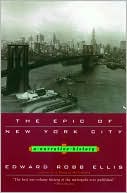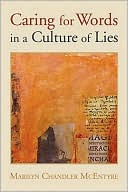"And all shall be well..."
An explication of T. S. Eliot's "Little Gidding"
Modernism professed that man was living in a post-Enlightenment era. It emphasized a bleak disillusionment for the things of the world. The Enlightenment philosophy had taught that man was progressing and would eventually be able to solve all the world’s problems. Yet the horror and carnage of two world wars revealed that this progress had lead to technology with the ability to take rather than prolong human life. The wars struck a blow to the belief in the superiority of Western civilization and destroyed any idea of the innate goodness of man.
T. S. Eliot’s (1888-1965) early poetry, especially The Waste Land and “The Hollow Men”, stood at the forefront of the Modernist movement, powerfully developing the deep darkness and despair of Modernistic thought. Indeed, he had often been hailed as the defining poet of the Modernist literary movement. Yet, in order for him to claim this title, a very important event in his life must be overlooked – his conversion to Christianity in 1927. His exploration of Modernistic thought was only his search for an answer to all the despair and hopelessness of mankind’s fallen condition. Indeed, it was not until after his conversion to Christianity that he reached the pinnacle of his poetic height in the most overtly Christian of all his poems – “Little Gidding.” The poem sets at odds the redemptive power of the Holy Spirit and the destructive power of man, following the outline of Dante’s Divine Comedy – the hopelessness of the Inferno (a world without God), the refining fires of Purgatorio (the journey to an understanding and faith in Christ), and, finally, the glorious eternal communion with God in Paradiso.
“Little Gidding” is the last in a series of a poems from T. S. Eliot’s Four Quartets. Though the poems act as a unified whole, each symbolizing a movement in a musical piece, it is possible to read them individually. This particular poem draws its name from a small village in Huntingdonshire where T. S. Eliot served as an air-raid warden during World War II. It opens on a scene in “midwinter spring” when “the brief sun flames the ice” and “there is no earth smell / Or smell of living thing” (1, 5, 12-13). Though filled with a sense of despair, there is a small glimmer of hope charged through these images. The speaker of the poem has not come without purpose to this village, but, rather, “You are here to kneel / Where prayer has been valid” (45-46). It is necessary to descend before he can ascend. In the beginning of The Divine Comedy, Dante attempted to reach heaven by simply climbing a steep hill out of the darkness into the light of heaven, but found it impossible. Instead, he had to journey back into the darkness and into the deepest darkness of all: the center of Hell. Dante had to realize fully his sinful state, dying to sin before he could be reborn in Christ. The first part of “Little Gidding” is a picture of Hell, a world removed from the light of God. T. S. Eliot describes what the village was like during the Blitz bombings, using “the dark dove with the flickering tongue” (the German dive bomber) as a symbol of all this desolation and hopelessness, the source of the destruction. After the houses were bombed, the ash would linger in the air for hours, covering people and their clothing,
Ash on an old man’s sleeveWith this background of Hell, Eliot continues to follow the pattern of Dante, evoking a type of image from The Inferno. Indeed, lines 78 to 149 have been considered as near to Dante's terza rima form as is possible in English. In The Inferno, Dante met the shades of many of the dead, who would stop to offer him some word of warning. After a bombing in Eliot’s poem, the narrator seems to see a ghost hurrying past him, who stops to talk with him. In all of this darkness and devastation, he summarizes the Modernist view of death.
Is all the ash the burnt roses leave.
Dust in the air suspended
Marks the place where a story ended. (54-57)
First, the cold friction of expiring senseThe Modernist has no hope in his future afterlife – there are no answers to all his previous mistakes. Actually, he can look forward to nothing. Man is sinful and unable to perfect himself. He cannot stop the destruction on this earth. But there is another answer. “From wrong to wrong the exasperated spirit / Proceeds, unless restored by that refining fire / Where you must move in measure, like a dancer” (144-146). On these words, the ghost disappears.
Without enchantment, offering no promise
But bitter tastelessness of shadow fruit as body and soul begin to fall asunder.
[…]
And last, the rending pain of re-enactment
Of all that you have done, and been; the shame
Of things ill done and done to others’ harm. (131-141)
Purgatorio followed Dante’s journey through the Catholic Purgatory, the spiritual realm where man was purified from his sin after death. Eliot evokes this with these words of a “refining fire.” He writes,
What they had to leave us—a symbolPurification does not happen over night. It is a gradual process, a journey – just as one must come to the deepest understanding of his depraved condition before he can travel upward to the light. Augustine, one of the early Church fathers, wrote The City of God, in which he described two different cities: that of man and that of God. Eliot uses this type of imagery in this part of the poem, exclaiming,
A symbol perfected in death.
And all shall be well....
By the purification of the motive
In the ground of our beseeching (194-199).
The dove descending breaks the airIn these lines, Eliot pits the symbols of the “dark dove” (the German plane) against the “dove descending” (the Holy Spirit). Man can either experience hope in the refining fire of the Holy Spirit or despair in the dark dove’s destruction. Yet, he admits that this is not always an easy decision. Being refined sometimes can be a “torment” (207). Both decisions are a fire, but the former is the only one that can lead to ultimate peace and happiness. At last, Eliot begins to build to the culmination of his poem,
With flame of incandescent terror
Of which the tongues declare
The one discharge from sin and error.
The only hope, or else despair
Lies in the choice of pyre of pyre—
To be redeemed from fire by fire (200-206).
With the drawing of this Love and the voice of this CallingWhen man is refined, his eyes are opened and he sees the world as if for the first time. The destruction around him can be fitted into the larger picture of God’s perfect plan. He knows that this not the end of everything for in the end “all shall be well and / All manner of thing shall be well” (255-256). There will be perfect unity and perfect peace.
We shall not cease from exploration
And the end of all our exploring
Will be to arrive where we started
And know the place for the first time (238-242).
When the tongues of flame are in-foldedThe ‘rose’ was the greatest image in Dante’s Paradiso. It was made of circles and circles, tiers on tiers of the Saints. He described it as “the rose that blooms eternal, rank on rank, in incense of praise it sends up to the Sun forever vernal.” Ultimately, it was a symbol of the eternal communion of God and man.
Into the crowned knot of fire
And the fire and the rose are one (257-259).
In “Little Gidding,” T. S. Eliot described the spiritual journey in passionate and stirring terms. To classify him as a Modernist poet when he offers such hope to the world is a terrible error. Many writers of literary criticism will go so far to classify even this poem as an example of Modernist thought. While the first half does over a bleak view of the world, the poem hardly ends there. Yet, it is true that in a world devoid of God, Modernism is indeed the only answer. There can be no hope, no peace, and no love without a God ordering and controlling the universe. History will spin out of control with no point and no purpose. The dark dove will continue its desolation with no one to stop him. Unless man is burned by “the flame of incandescent terror,” he will continue to live in a wasteland, unable to see the world with new eyes and a new soul and say from the depths of his heart, “And all shall be well.”
Works Cited
Eliot, T. S. “Little Gidding.” 1943. The Norton Anthology of English Literature: The Major Authors. Stephen Greenblatt, General Editor. 8th edition. New York: W. W. Norton & Company, Inc., 2006, pgs. 2507-2534.
Labels: book reviews, bookish musings, explication de texte, literary criticism
Posted by Nicole Bianchi at 1:16 PM
![]()





 This is life seen through the eyes of a writer. A blog that critically examines literature, music, and film. NB, initials which coincidently coinside with the Latin words "nota bene" (mark well), belong to the blog poster, a bibliophile who likes to haunt libraries and book stores, talk about all things bookish, and ramble at any length on things regarding literature. Many of the articles posted here were written as essays for high school and college.
This is life seen through the eyes of a writer. A blog that critically examines literature, music, and film. NB, initials which coincidently coinside with the Latin words "nota bene" (mark well), belong to the blog poster, a bibliophile who likes to haunt libraries and book stores, talk about all things bookish, and ramble at any length on things regarding literature. Many of the articles posted here were written as essays for high school and college.






2 Comments:
Excellent post on Elliot.
12/30/2009 1:26 AM
Sorry, that was me.
12/31/2009 1:21 PM
Post a Comment
<< Home